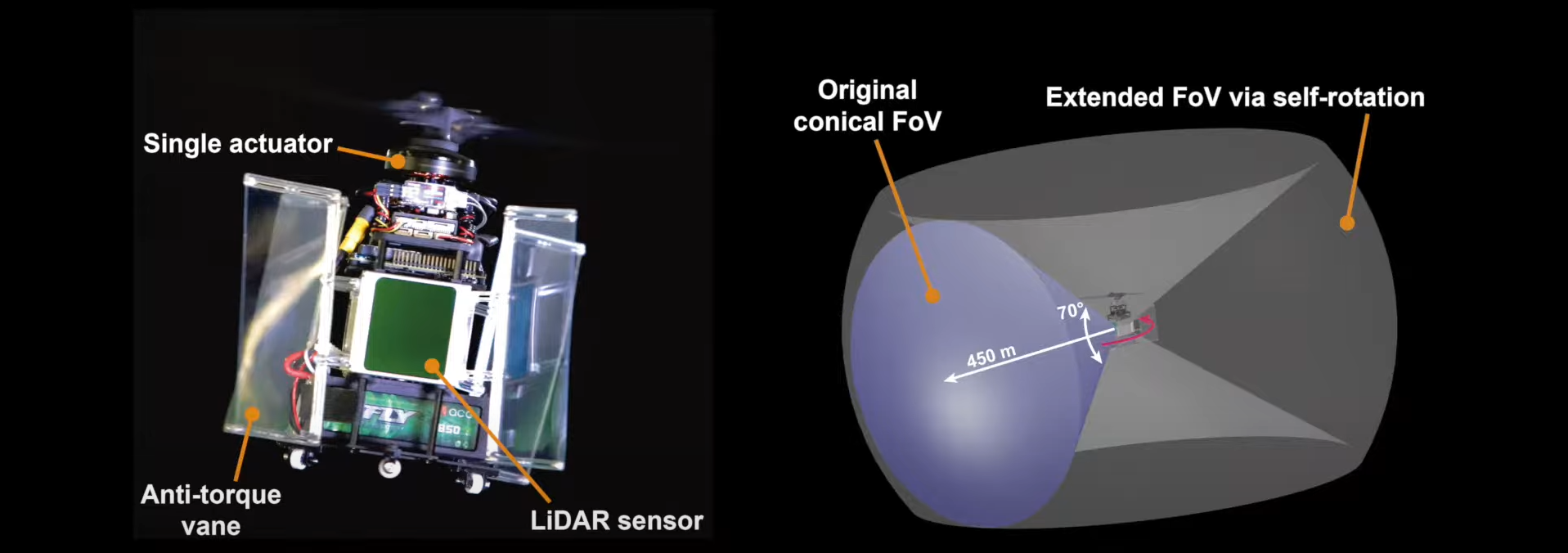Multiple motors or servos are the norm for drones to achieve controllable flight, but a team from MARS LAB HKU was able to a 360° lidar scanning drone with full control on just a single motor and no additional actuators. Video after the break.
The key to controllable flight is the swashplateless propeller design that we’ve seen few times, but it always required a second propeller to counteract self-rotation. In this case the team was able to make that self-rotation work for them to achieve 360° scanning with a single fixed LIDAR sensor. Self-rotation still need to be slowed was successfully done with four stationary vanes. The single rotor also means better efficiency compared to a multi-rotor with similar propeller disk area.
The LIDAR comprises a full 50% of the drones weight and provides a conical FOV out to a range of 450m. All processing happens onboard the drone, with point cloud data being processed by a LIDAR-inertial odometry framework. This allows the drone to track and plan it’s flight path while also building a 3D map of an unknown environment. This means it would be extremely useful for indoor or undergrounds environments where GPS or other positioning systems are not available.
All the design files and code for the drone is up on GitHub, and most of the electronic components are off-the-shelf. This means you can build your own, and the expensive lidar sensor is not required to get it flying. This seems like a great platform for further experimentation, and getting usable video from a normal camera would be an interesting challenge.
